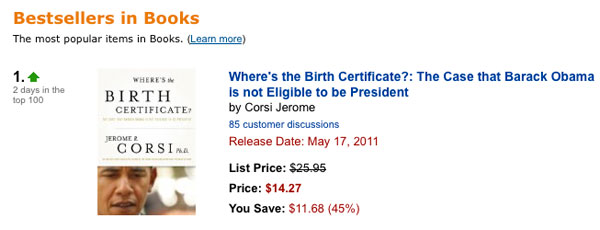
Readers may recall a certain Senate race in 2004 when a skinny guy with a funny name went up against a handsome guy with a boring name. It promised to be a showdown: two young, attractive, well-educated, personally appealing candidates from the political centers of their respective parties in a high-profile election.
Then there was a thing about Jack Ryan’s divorce, and he disappeared. The Illinois GOP, having seen their most promising candidate in years go up in a poof of sex club*, needed a replacement. They went through their perpetual-candidate Rolodex, and sure enough, Alan Keyes was available, the Todd Collins of political candidates. The race was immediately over. In the debates, all Obama had to do wait for Keyes to get started on abortion or the constitution and kick back as everything went all cable-access.
But Keyes got 27 percent of the vote. He wasn’t from Illinois; had spent the better part of the decade as the electoral equivalent of the Washington Generals; and regularly said things that were either “crazy” or “surprising to hear in the realm of generalized American political discourse” depending on how charitable you feel. And still got 27 percent of the vote.
This led screenwriter John Rodgers and a friend to coin the term Crazification Factor–an unpredictable and shifting yet relatively consistent bottom, like the silt at the bottom of a pond: “Half just have worldviews which lead them to disagree with what you consider rationality even though they arrive at their positions through rational means, and the other half are the core of the Crazification — either genuinely crazy; or so woefully misinformed about how the world works, the bases for their decision making is so flawed they may as well be crazy.”
“Crazification” seems not just unkind but simplistic, though I don’t deny a certain baseline: I’d add ironic voting, protest votes–a vote for Alan Keyes is a resonant protest vote–and even people who want to make a spectacle worse. But it still seems to be a useful theory, in the sense that when I see Donald Trump polling really well (26 percent!), or birthers continuing to emit a low hum (27 percent!), I’m no longer shocked: oh, that’s just the Keyes Constant.
* We don’t want our politicians hiding their sex lives, yet we don’t want them having sex in public, either. We are a fickle people.
Update: Oh my (via Balloon Juice):



